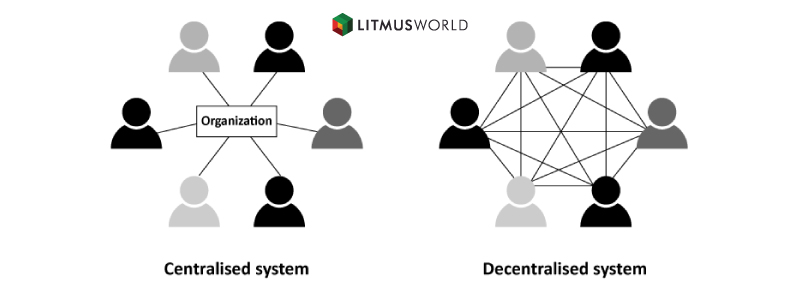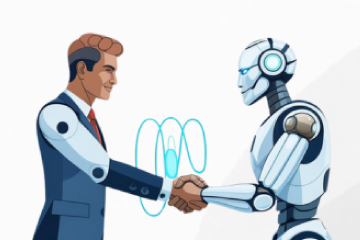Centralised vs Decentralised CEM
Centralised vs Decentralised CEM

When a company starts its customer experience (CX) journey, it often establishes a centralized team to build the necessary internal capabilities and catalyze change. However, that team’s effectiveness can be limited by a number of things, including divided attention within lines of business and a lack of resources to reach across the company.
A decentralised model is a structure for enabling and coordinating a distributed set of customer experience capabilities, and it operates through centres of excellence. These CoE include deep analytics, reporting and data visualization, experience design, customer-driven process improvement, and culture change management. Enterprise CX coordination oversees enterprise CX strategy and governance, insights, metrics and reporting, standard methodologies and tools, central CX storylines, and portfolio management. And distributed CX skills and mindsets encompasses CX goal alignment, customer understanding, empathy orientation, improvement focus, and organizational awareness.

Limitations to Centralised CEM
Although a centralized CX team can be efficient at developing capabilities and influencing change, it can also struggle with turning CX into an ongoing, sustainable discipline across the entire organization.
Limited access: Centralized CX teams can struggle with gaining access to and building working relationships with key business stakeholders inside the company. Without connections into different lines of business (LOBs) and functions, centralized CX team members aren’t able to build credibility and trust, a key requirement for influencing change.
Lack of knowledge:
Because they are separate from the business side of their organization, members of centralized CX teams also find it more difficult to gain a deep understanding of different parts of the business, limiting their ability to interpret the customer feedback and data they gather. Without context, centralized CX teams deliver less relevant insights and recommendations, and fail to inspire action. Consequently, only about one-quarter of companies think they are good at making changes to the business based on those customer insights.
Divided attention:
When it comes to setting priorities for the company, centralized CX teams often have a blind spot when it comes to the business objectives LOBs are held accountable to. As a result, sometimes the areas that the CX team identifies for a LOB to focus on may not align with where the LOB is willing or able to act.
Limited resources:
Centralized CX teams have to compete with other corporate functions for their share of funding and resources. Because companies try to allocate resources somewhat equitably among its centralized functions, a CX team can be left with too few people to fully engage the parts of the business that need to change. It can also limit the team’s ability to add new skills and capabilities in order to expand the value it delivers to the organization.

The Decentralised Customer Experience Model
If centralized CX teams can’t fully drive and sustain change across their organization, then what’s the right approach?
In a decentralised model, the company is able to generate a greater impact from its CX efforts because it can tailor best practices to work within individual parts of the business, embed CX deeper into the company’s culture, and leverage centralized learnings to affect significantly more decisions and processes across the company.
The ideal decentralised CX model is built upon three components:
CX centres of excellence:
Organizations must maintain a strong set of capabilities in some areas. Rather than having them all reside in a centralized team, organizations can develop centres of excellence (CoE). CoE members will then continue to build capabilities while sharing best practices and supporting the rest of the organization in those areas.
Enterprise CX coordination:
Within a decentralised model, a centralized CX team serves as a coordinator, overseeing the setting of collective goals and objectives, enforcing enterprise-wide standards to prevent localized deviation, and acting as a hub for cross-pollination of ideas and success stories.
Distributed CX skills and mindset:
Dispersing CX capabilities through CoEs does not eliminate the need to infuse a customer-centric mindset and skills across the company. Sustainable CX success will only happen when everyone in the organization understands how they each make the desired customer experience a reality.
Shifting from a centralized to decentralised model will involve changes not only in the services a centralized CX team provides to the company but also in the members of the team themselves, as they adapt their skill sets to complete new challenges.
Successful CX professionals will be the ones who:

Learn the business:
As CX becomes decentralised, the LOBs will expect CX insights and guidance to be customized to their specific needs and interests. While the ultimate goal is for CoEs and LOB stakeholders to be responsible for this customization, during the transition, CX professionals will need to tap into an increasing level of business knowledge around the LOBs’ objectives, offerings, customers, and market dynamics to make sure their work delivers meaning and value.
Coach and advise others:
Most centralized CX team members are tasked with “doing” the work of CX for the entire organization, especially when there is little-to-no CX understanding or ability across the company. As a company moves to a decentralised model, CX team members will have to help their colleagues learn to do things on their own. This means being able to package information and practices so others can use them independently and stepping in to provide coaching and guidance when they detect a group is struggling.
Embrace empowerment:
Successful CX professionals will embrace the mindset that it is okay to give up control in order to empower others to meet their objectives. As CX decentralises across the company, CX professionals will need to be able to align others around the goals of the organization, motivate them to accept ownership for helping the company achieve those goals, and devise effective ways to hold them accountable with help from company leaders.
Keep learning:
As established methodologies are distributed across the organization, CX teams will still need to pay attention to new developments within the CX discipline that may have a bearing on their work. Successful CX professionals will seek out and experiment with emerging CX practices and tools to assess their usefulness at the company.
Choose to specialize:
A decentralised model will push more ownership and accountability out to CoEs and across the business, driving groups other than the CX team to assume the role of “expert” for things like insights analytics, experience design, or culture change management. Some CX team members may decide to specialize and deepen their expertise around a specific skill set as a member of a CoE, leaving their centralized role behind.
Want to know more? Connect with us today and one of our solution experts with walk you through the steps of setting up a decentralised CEM initiative.

